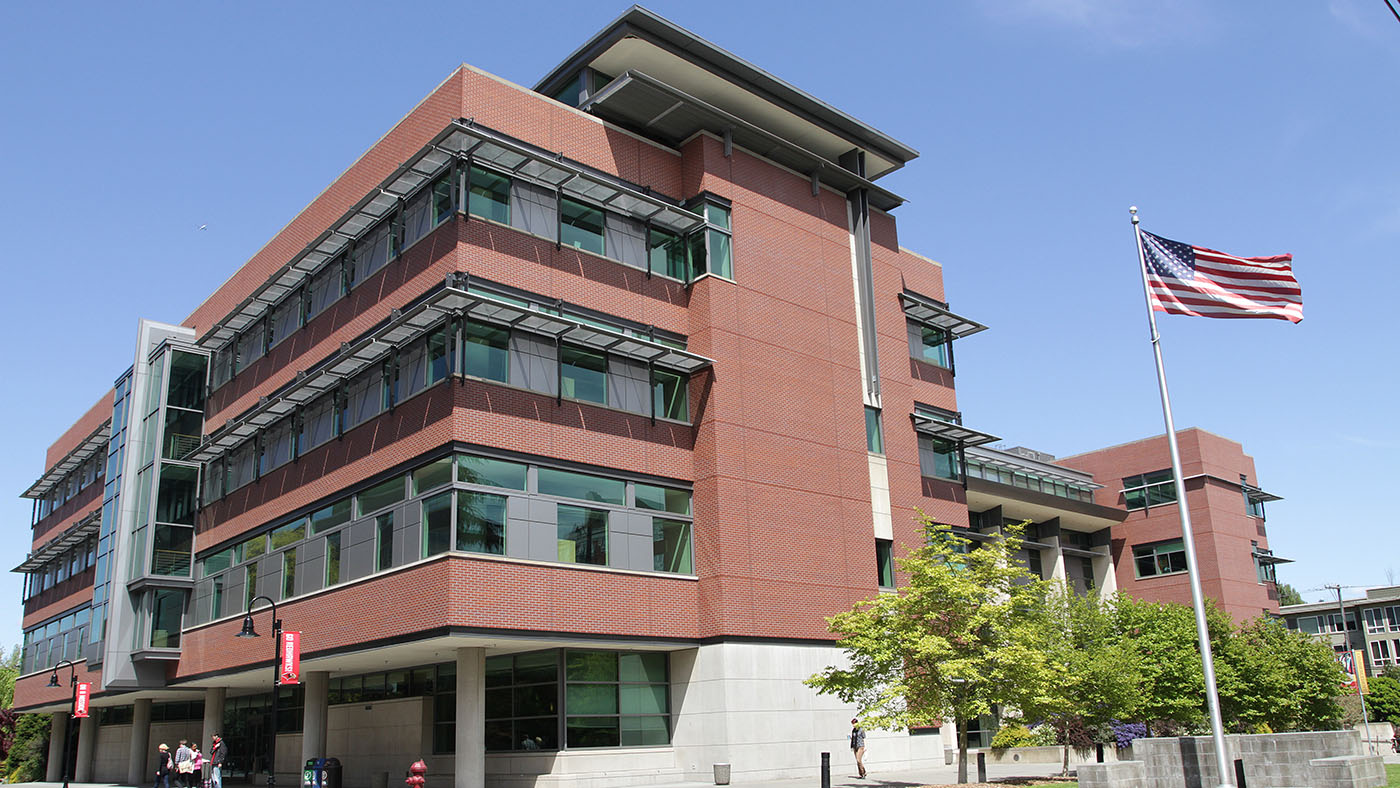Law school ranks in Top 25 nationally for large jump in recent grads’ employment rate
Seattle University School of Law has been named a national “Employment Leader” by the National Jurist’s preLaw Magazine, a result of its successful efforts to improve the percentage of recent graduates who are employed in the months after they complete law school.
With an employment rate that has grown by nearly 10% between the periods of 2017-19 and 2021-23, Seattle U Law ranks in the top 25 among all law schools nationwide for improvement in this metric.
“This recognition is a significant validation of our strategic ‘all hands on deck’ approach that draws on the expertise and dedication of our entire faculty and staff to provide the best possible education and career preparation support to our students so that they are among the most desirable and qualified candidates for jobs,” said Dean Anthony E. Varona.
“I think we were able to achieve that kind of trajectory because we focus on building relationships with our students and helping them achieve their job goals through genuine partnership,” said Erin Fullner (Seattle University ’18), associate dean for Student Development.
“What the article and acknowledgement shows is a very strong increase in the employment rate over the last three years,” said Matt Etter ’12, assistant dean for the Center for Professional Development (CPD), who works alongside Fullner, advising students and recent graduates in searching for jobs, editing resumés, networking, and other forms of career preparation. “We made a really concerted effort a couple years ago to reassess how we were supporting our grads and how we could best do that. We decided to approach our support for recent grads in a more intentional way.”
To this end, the center has introduced new programming for recent graduates in the fall and winter, the legal sector’s busiest hiring season. This way, students have already taken the bar exam and received their scores before meeting potential employers.
The new events include an on-campus interview program with employers, an annual session with a legal recruiter who provides information about the state of the market and self-promotion strategies, and panels with alumni on topics such as broadening job searches to include areas outside of Seattle, working in JD-advantage jobs (which do not require a legal license but are benefitted by a legal education), and more.
“Everyone is really dedicated to our ultimate goal of helping students and graduates secure meaningful employment. It guides all of our work,” Etter said of his CPD colleagues. “We’re connected to the institution, since four of us are alumni, so we really believe in Seattle University’s mission and the students who choose to come here.”
“We of course help students and grads with the nuts-and-bolts aspects of job searching, like drafting strong cover letters, interviewing well, and networking, but we also help them envision their future, including introducing them to paths they might not have previously considered,” Fullner explained.
Etter noted that the Seattle job market has unique challenges, with fewer large corporate firms compared to other major cities, high competition for jobs due to the population boom of recent years, and a skyrocketing cost of living.
CPD’s mission is to work with students during their entire law school careers, beginning with orientation. The center holds mandatory workshops for 1L students, while inviting students to return for regular meetings throughout their law school years.
“We can best support students and recent grads when we know them, and our services are more valuable when we understand their reasons for wanting to become an attorney and where they hope to be once they are an attorney,” Etter said.
The center also holds a variety of events for students to make connections with potential employers. Additionally, Etter and his colleagues make an effort to attend law school events outside of those hosted by CPD, so they can help introduce students to local legal professionals and set an example of the importance of building a network.
“We stress that professional development, networking, and relationship development are things students should be working on from the first day that they start law school, and it’s a big part of the law school experience,” Etter said. “A well-rounded job search is not just applying to opportunities, but networking, volunteering, and proactively reaching out to employers doing work that you’re interested in.”

